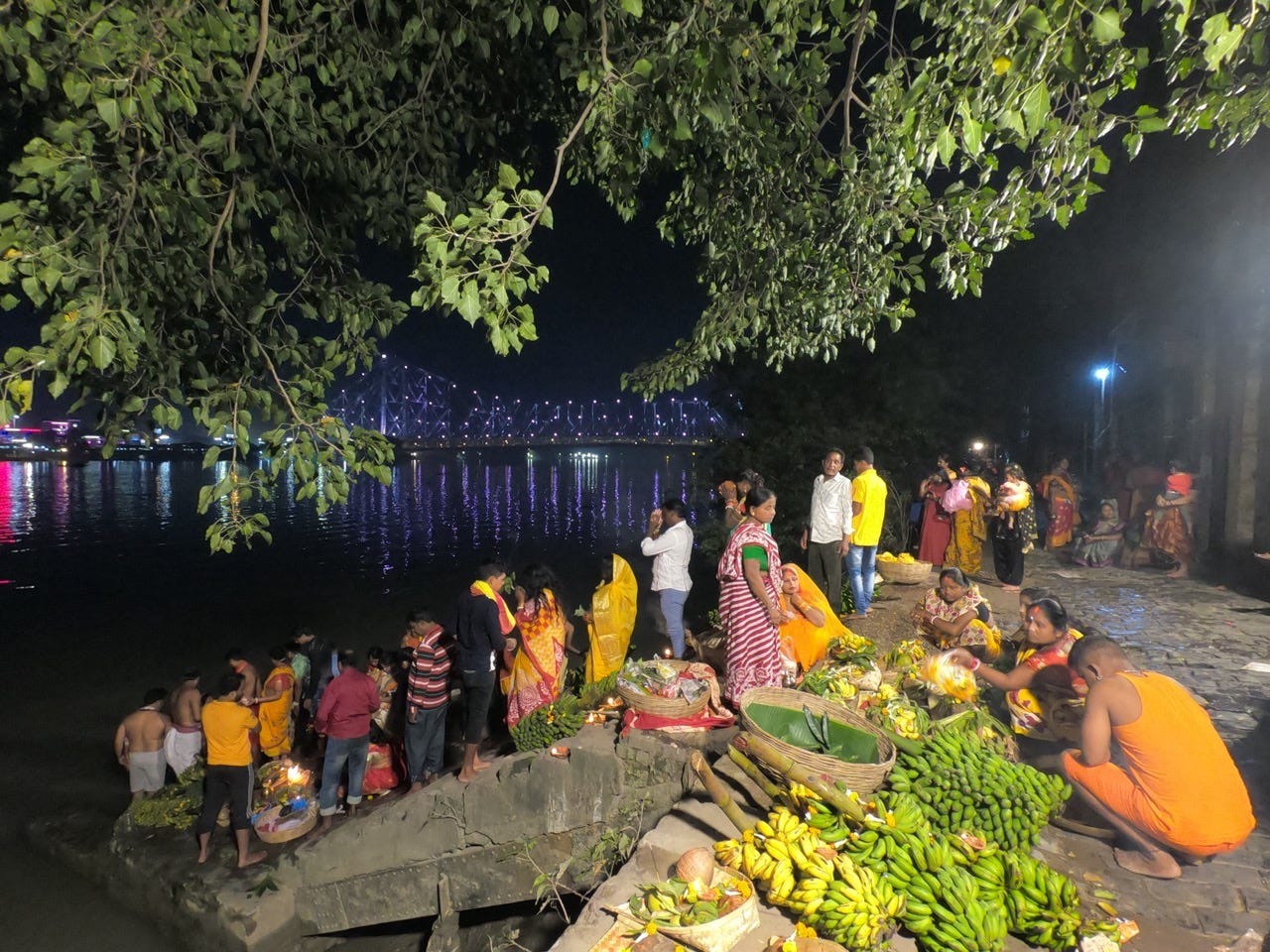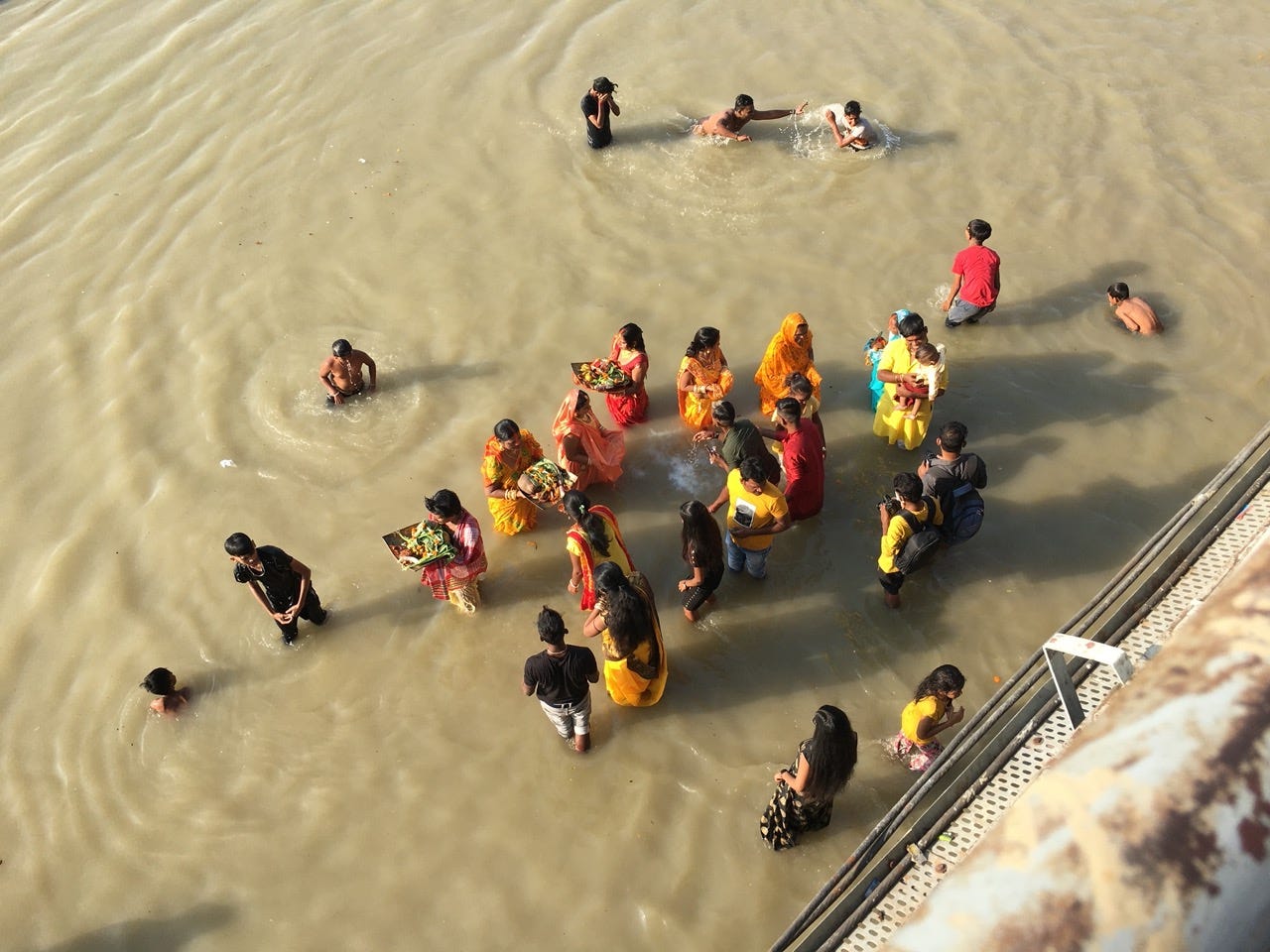Chhath Puja Festival
Chhath is a major Hindu Vedic festival celebrated in Bihar and eastern Uttar Pradesh. Almost all civilizations have worshipped the 'God Sun', but it has a unique form in Bihar Chhath Puja is the only occasion where the setting sun is worshipped along with the rising sun. According to the Hindu calendar, Chhath Puja is celebrated on the sixth day of Kartik month. Chhath Puja, also known as Surya Shashti, is a bathing festival followed by a four-day period of abstinence and ritual purity.
Chhath Puja is a four-day long strict and spiritual observance. The first day of the Chhath Puja includes taking a dip in the holy river/any water body. People also take the water of Ganges to their homes to perform special offerings and rituals. Houses are thoroughly cleaned on this day. The second day of Chhath, also known as Kharna, involves devotees observing a day long fast, which is broken in the late evening after performing the worship of Mother Earth. The offerings to the God include rice pudding (kheer) and fruits, which is distributed among family members and friends. The third day of Chhath goes in the preparation of the prasad (offerings) for the evening offerings, also known as Sanjhiya Arghya.
In the evening, large numbers of devotees gather on the banks of rivers and make offerings (Arghya) to the setting sun. The folk songs are played displaying the culture and history of Bihar. The night of the third day witnesses a colorful event known as Kosi. A canopy is made from sugarcane sticks and lighted earthen lamps are placed inside the canopy along with baskets filled with prasad. On the fourth and final day of Chhath, family members and friends go to the banks of rivers before sunrise and making offerings (Arghya) to the rising sun. After this ritual, devotees break their fast and distribute Prasad to neighbors and relatives.
The rituals are observed over four days. They include holy bathing, fasting and abstaining from drinking water(vrata), standing in water, and offering prasad (prayer offerings) and arghya to the setting and rising sun. Some devotees also perform a prostration march as they head for the river banks.





